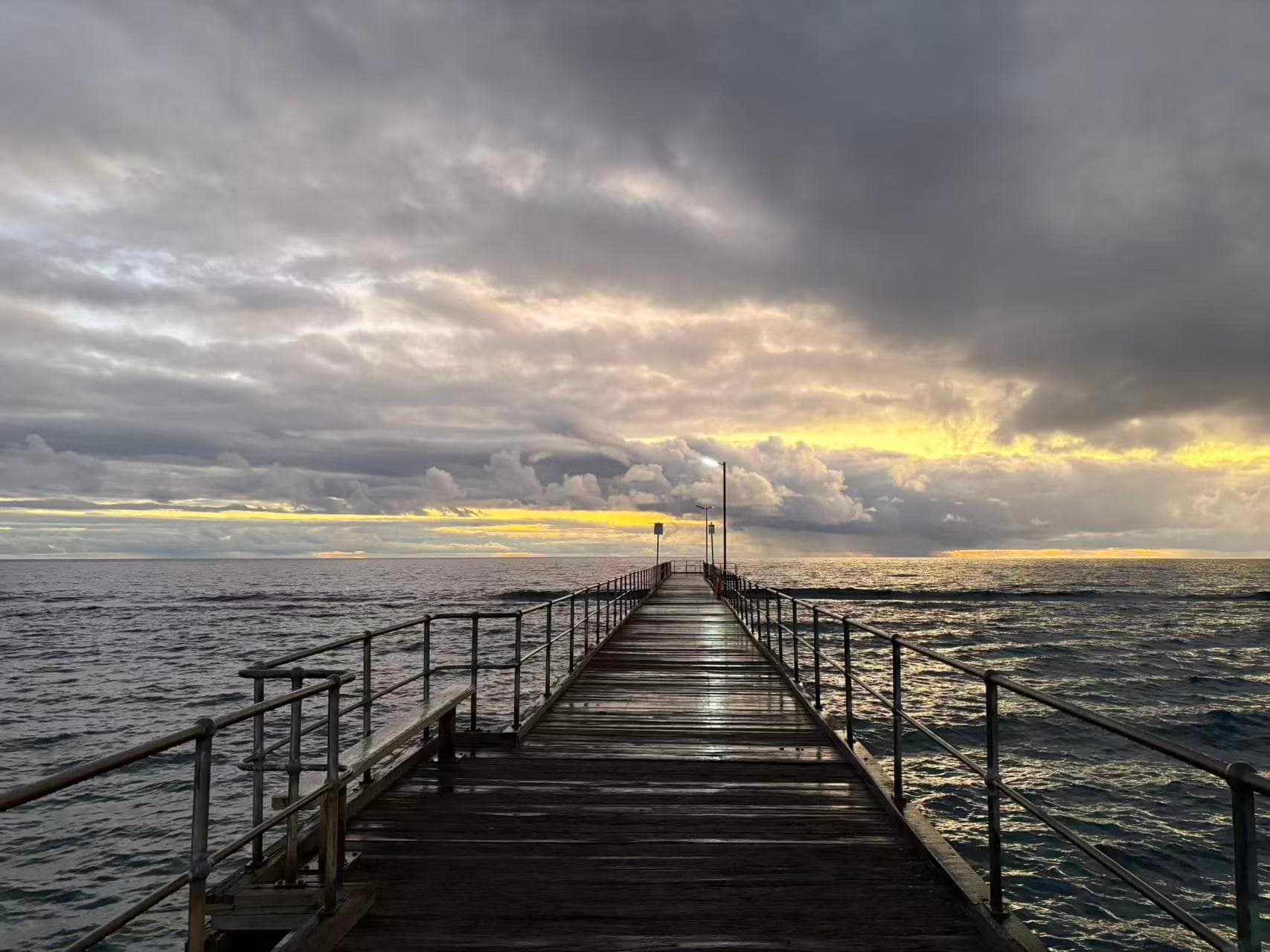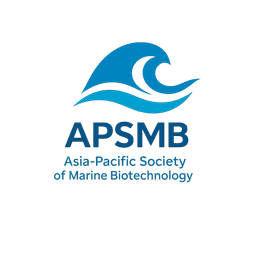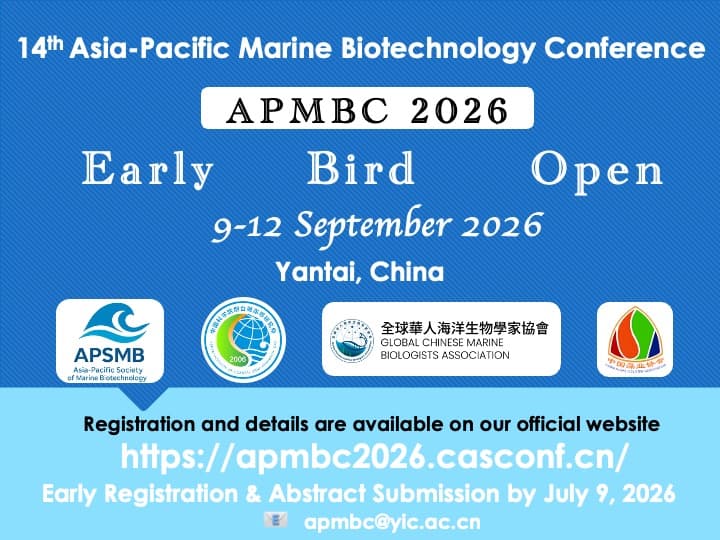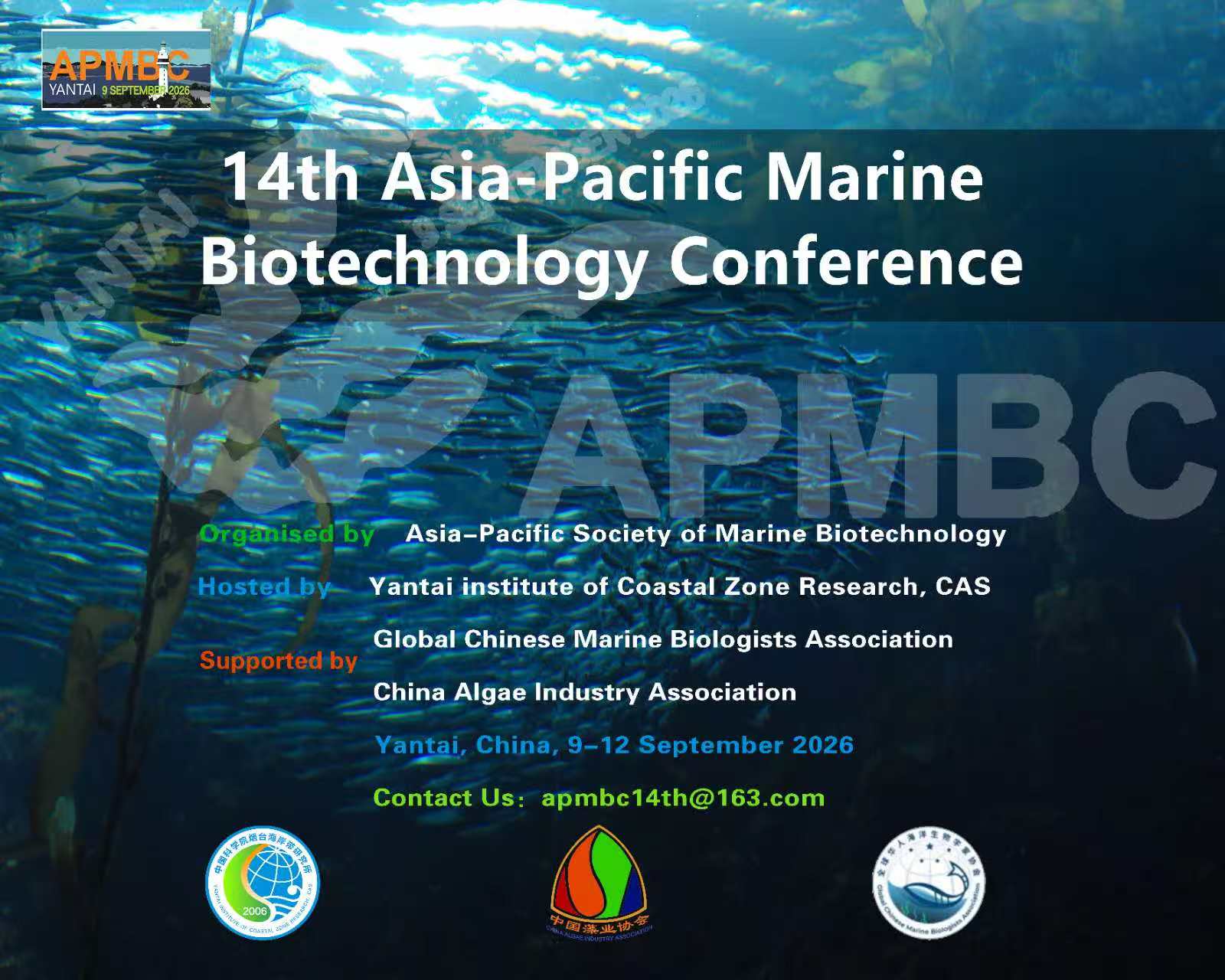
Asia-Pacific Society of Marine Biotechnology
Advancing marine biotechnology research and industry development across the Asia-Pacific region
Latest: APMBC 2026 Conference: "Marine BioTech for Sustainable Human-Ocean Harmony" - September 9-12, 2026 in Yantai, China | Early Registration & Abstract Submission Deadline: July 9, 2026 | Online Registration Deadline: August 9, 2026 | Onsite Registration Deadline: September 8, 2026 | Conference Dates: Opening September 9, Closing September 12, 2026 | APMBC 2026 returns to China - Premier marine biotechnology platform in the Asia-Pacific region
The Asia-Pacific Marine Biotechnology Association (APSMB) is a leading organization dedicated to advancing marine biotechnology research, industry development, and policy making across the Asia-Pacific region. Our mission is to foster collaboration between researchers, industry leaders, investors, and policymakers to drive innovation in marine biotechnology.
For nearly thirty years, APSMB has been dedicated to groundbreaking research in marine biotechnology and promotion of its industry applications.
APSMB continues to facilitate and grow networks between stakeholders, including world-leading scientists, industry experts, investors, and policymakers. APSMB provides a vital bridge for international collaboration and technological innovation. Our focus is on innovative applications in marine biotechnology for food security, medical health, energy development, environmental protection, and related fields.
Through the successful organisation of conferences, APSMB has become an essential nexus that drives innovation in marine biotechnology. Our conferences facilitate international scientific cooperation, forming deep connections among academia, industry, and research solutions.
The conference plays an increasingly important role in the structure of a sustainable blue economy. The promotion of balance between resource development and marine protection, essential for harmonious coexistence between humans and the ocean, contributes significantly to our shared future.
Latest News Bulletin
14th Asia-Pacific Marine Biotechnology Conference
APMBC 2026 Early Registration
9-12 Sept. 2026
Yantai, China
Marine BioTech for Sustainable Human-Ocean Harmony
14th Asia-Pacific Marine Biotechnology Conference
APMBC 2026
9-12 Sept. 2026
Yantai, China
Marine BioTech for Sustainable Human-Ocean Harmony
Past APMBC Conferences
| Edition | Date | Venue |
|---|---|---|
| 14th | September 2026 | Yantai, China |
| 13th | October 2023 | Adelaide, Australia |
| 12th | September 2019 | Shizuoka, Japan |
| 11th | May 2017 | Hawaii, USA |
| 10th | May 2014 | Taipei, Taiwan |
| 9th | July 2012 | Kochi, Japan |
| 8th | November 2008 | Busan, South Korea |
| 7th | November 2006 | Kochi, India |
| 6th | November 2004 | Zhoushan, China |
| 5th | September 2003 | Chiba, Japan |
| 4th | April 2002 | Hawaii, USA |
| 3rd | November 1999 | Manila, Philippines |
| 2nd | May 1997 | Phuket, Thailand |
| 1st | September 1995 | Shizuoka, Japan |


